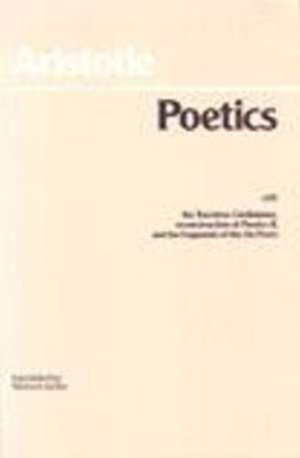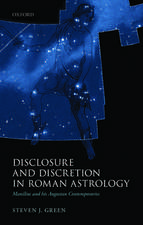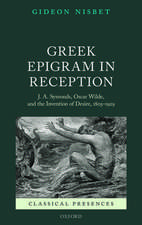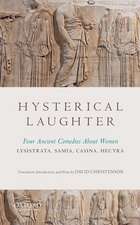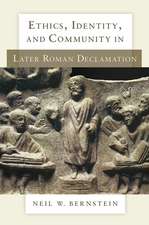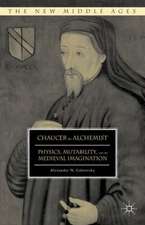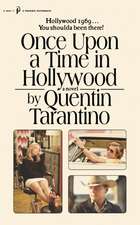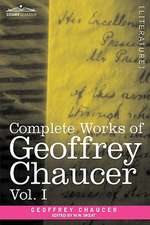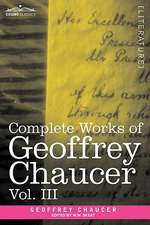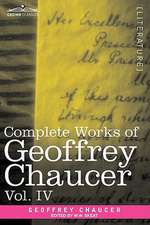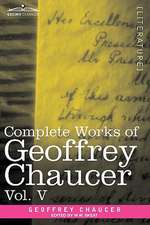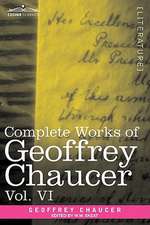Poetics: with the Tractatus Coislinianus, reconstruction of Poetics II, and the fragments of the On Poets: Hackett Classics
Autor Aristotle Traducere de Richard Jankoen Limba Engleză Paperback – 15 dec 1987
| Toate formatele și edițiile | Preț | Express |
|---|---|---|
| Paperback (12) | 34.82 lei 22-36 zile | |
| – | 34.82 lei 22-36 zile | |
| CREATESPACE – | 38.43 lei 22-36 zile | |
| CREATESPACE – | 45.82 lei 22-36 zile | |
| Penguin Books – 25 sep 1996 | 51.36 lei 25-31 zile | +16.06 lei 5-11 zile |
| CREATESPACE – | 62.50 lei 22-36 zile | |
| Prometheus Books – 31 oct 1992 | 66.05 lei 22-36 zile | |
| Hackett Publishing Company – aug 2006 | 91.22 lei 22-36 zile | +13.20 lei 5-11 zile |
| Hackett Publishing Company – 15 dec 1987 | 121.68 lei 22-36 zile | +24.33 lei 5-11 zile |
| CreateSpace Independent Publishing Platform – 8 dec 2015 | 58.11 lei 43-57 zile | |
| COSIMO CLASSICS – 30 oct 2008 | 74.27 lei 43-57 zile | |
| Book Jungle – 3 iul 2008 | 75.17 lei 43-57 zile | |
| TREDITION CLASSICS – 31 oct 2011 | 108.56 lei 43-57 zile | |
| Hardback (1) | 328.85 lei 22-36 zile | |
| Hackett Publishing Company – 15 dec 1987 | 328.85 lei 22-36 zile |
Din seria Hackett Classics
-
 Preț: 65.88 lei
Preț: 65.88 lei - 15%
 Preț: 195.50 lei
Preț: 195.50 lei - 14%
 Preț: 184.08 lei
Preț: 184.08 lei - 7%
 Preț: 81.60 lei
Preț: 81.60 lei - 8%
 Preț: 345.52 lei
Preț: 345.52 lei - 7%
 Preț: 143.79 lei
Preț: 143.79 lei - 8%
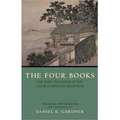 Preț: 106.45 lei
Preț: 106.45 lei - 8%
 Preț: 314.30 lei
Preț: 314.30 lei - 14%
 Preț: 171.00 lei
Preț: 171.00 lei - 11%
 Preț: 209.65 lei
Preț: 209.65 lei - 8%
 Preț: 125.82 lei
Preț: 125.82 lei - 7%
 Preț: 108.56 lei
Preț: 108.56 lei - 8%
 Preț: 309.90 lei
Preț: 309.90 lei - 9%
 Preț: 318.62 lei
Preț: 318.62 lei - 8%
 Preț: 293.06 lei
Preț: 293.06 lei - 18%
 Preț: 336.33 lei
Preț: 336.33 lei - 8%
 Preț: 292.34 lei
Preț: 292.34 lei - 8%
 Preț: 138.63 lei
Preț: 138.63 lei - 11%
 Preț: 210.28 lei
Preț: 210.28 lei - 7%
 Preț: 74.13 lei
Preț: 74.13 lei - 13%
 Preț: 263.30 lei
Preț: 263.30 lei - 13%
 Preț: 262.04 lei
Preț: 262.04 lei - 8%
 Preț: 85.81 lei
Preț: 85.81 lei - 12%
 Preț: 269.79 lei
Preț: 269.79 lei - 7%
 Preț: 101.44 lei
Preț: 101.44 lei - 8%
 Preț: 92.26 lei
Preț: 92.26 lei - 14%
 Preț: 183.57 lei
Preț: 183.57 lei - 9%
 Preț: 304.37 lei
Preț: 304.37 lei - 8%
 Preț: 294.64 lei
Preț: 294.64 lei - 14%
 Preț: 171.16 lei
Preț: 171.16 lei - 7%
 Preț: 128.27 lei
Preț: 128.27 lei - 8%
 Preț: 299.09 lei
Preț: 299.09 lei - 13%
 Preț: 264.76 lei
Preț: 264.76 lei - 8%
 Preț: 332.07 lei
Preț: 332.07 lei - 13%
 Preț: 246.98 lei
Preț: 246.98 lei - 13%
 Preț: 243.54 lei
Preț: 243.54 lei - 8%
 Preț: 331.87 lei
Preț: 331.87 lei - 8%
 Preț: 310.67 lei
Preț: 310.67 lei - 7%
 Preț: 323.40 lei
Preț: 323.40 lei - 13%
 Preț: 265.61 lei
Preț: 265.61 lei - 13%
 Preț: 175.48 lei
Preț: 175.48 lei - 8%
 Preț: 327.47 lei
Preț: 327.47 lei - 13%
 Preț: 231.00 lei
Preț: 231.00 lei - 13%
 Preț: 243.18 lei
Preț: 243.18 lei
Preț: 121.68 lei
Preț vechi: 131.18 lei
-7% Nou
Puncte Express: 183
Preț estimativ în valută:
23.29€ • 25.31$ • 19.58£
23.29€ • 25.31$ • 19.58£
Carte disponibilă
Livrare economică 31 martie-14 aprilie
Livrare express 14-20 martie pentru 34.32 lei
Preluare comenzi: 021 569.72.76
Specificații
ISBN-13: 9780872200333
ISBN-10: 0872200337
Pagini: 261
Dimensiuni: 152 x 225 x 15 mm
Greutate: 0.36 kg
Editura: Hackett Publishing Company
Colecția Hackett Publishing Company, Inc (US)
Seria Hackett Classics
Locul publicării:United States
ISBN-10: 0872200337
Pagini: 261
Dimensiuni: 152 x 225 x 15 mm
Greutate: 0.36 kg
Editura: Hackett Publishing Company
Colecția Hackett Publishing Company, Inc (US)
Seria Hackett Classics
Locul publicării:United States
Recenzii
Of enormous use to anyone, philosopher or classicist, student or instructor, who wants to know more about Aristotle's work on literature . . . more than I would have believed possible, [Janko makes] the text of the Poetics transparent and accessible to nonclassicists. The translation is based on a meticulous study of the text. Deviations from the standard text by R. Kassell . . . are listed in transliterated Greek; and textual questions are discussed and explained lucidly. The brief introduction is full of useful information, on Aristotle, on the background of the Poetics, on its structure, and on major controversies. In addition to all this, the text is followed by a little treasury of sources that permit a sketchy reconstruction of the lost second book of the Poetics. --Ann N. Michelini, University of Cincinnati
Thorough, admirable, indispensable to anyone seriously interested in Aristotle's literary theory, with or without access to the texts in Greek. --Thomas Clayton, University of Minnesota
Thorough, admirable, indispensable to anyone seriously interested in Aristotle's literary theory, with or without access to the texts in Greek. --Thomas Clayton, University of Minnesota
Notă biografică
Aristotle (384-322 BC) was a Greek philosopher during the Classical period in Ancient Greece, the founder of the Lyceum and the Peripatetic school of philosophy and Aristotelian tradition. Along with his teacher Plato, he has been called the Father of Western Philosophy. His writings cover many subjects - including physics, biology, zoology, metaphysics, logic, ethics, aesthetics, poetry, theatre, music, rhetoric, psychology, linguistics, economics, politics and government.
Aristotle provided a complex synthesis of the various philosophies existing prior to him, and it was above all from his teachings that the West inherited its intellectual lexicon, as well as problems and methods of inquiry. As a result, his philosophy has exerted a unique influence on almost every form of knowledge in the West and it continues to be a subject of contemporary philosophical discussion.
Little is known about his life. Aristotle was born in the city of Stagira in Northern Greece. His father, Nicomachus, died when Aristotle was a child, and he was brought up by a guardian. At seventeen or eighteen years of age, he joined Plato's Academy in Athens and remained there until the age of thirty-seven (c. 347 BC). Shortly after Plato died, Aristotle left Athens and, at the request of Philip II of Macedon, tutored Alexander the Great beginning in 343 BC. He established a library in the Lyceum which helped him to produce many of his hundreds of books on papyrus scrolls. Though Aristotle wrote many elegant treatises and dialogues for publication, only around a third of his original output has survived, none of it intended for publication.
Cuprins
Translated with an Introduction and Notes by Malcolm Heath
Introduction
1. Human culture, poetry and the Poetics
2. Imitation
3. Aristotle's history of poetry
4. The analysis of tragedy
5. Plot: the basics
6. Reversal and recognition
7. The best kinds of tragic plot
8. The pleasures of tragedy
9. The other parts of tragedy
10. Tragedy: miscellaneous aspects
11. Epic
12. Comedy
13. Further reading
14. Reference conventions
Notes to the Introduction
Synopsis of the Poetics
POETICS
Notes to the translation
Textul de pe ultima copertă
Aristotle's Poetics is one of the most powerful, perceptive and influential works of criticism in Western literary history. A penetrating, near-contemporary account of Greek tragedy, it demonstrates how the elements of plot, character and spectacle combine to produce 'pity and fear' - and why we derive pleasure from this apparently painful process. It introduces the crucial concepts of mimesis ('imitation'), hamartia ('error') and katharsis, which have informed serious thinking about drama ever since. It examines the mythological heroes, idealized yet true to life, whom Aeschylus, Sophocles and Euripides brought on to the stage. And it explains how the most effective plays rely on complication and resolution, recognitions and reversals. Essential reading for all students of Greek literature and of the many Renaissance and post-Renaissance writers who consciously adopted Aristotle as a model, the Poetics is equally stimulating for anyone interested in theatre today.
